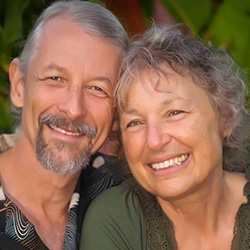Select Media Type, Click Search
Search All
Alan Rafael Seid
Anna Groves
Anne Walton
Arnina Kashtan
Authentic Communication Group
Aya Caspi
Barbara Larson, Deborah Bellamy, Jeff Brown, Kirsten Kristensen, Kristen Masters, Louise Romaine, Mary Mackenzie
Bob Wentworth
Bridget Belgrave
Bridget Belgrave, Jeff Brown, Mary Mackenzie
Catherine Cadden and Jesse Wiens
Catherine Cadden, Duke Duchscherer, Jesse Wiens Chu, Kathleen Macferran and Mary Mackenzie
Catherine Cadden, Jesse Wiens, Mark Schultz, Miki Kashtan
Ceri Buckmaster, Jo McHale and Sarah Ludford
Christine King
Christine King and Jean Morrison
Christine King, Faye Landey, Liv Larsson, Rita Herzog, Mary Mackenzie
CNVC
David Weinstock
Dian Killian
Dian Killian, Gregg Kendrick, Martha Lasley, Mel Sears, Wes Taylor, Mary Mackenzie
Dian Killian, Martha Lasley
Dian Killian, Mary Mackenzie
Duke Duchscherer
Eddie Zacapa
Elia Lowe-Chardé
Eric Bowers
Gary Baran
Gina Cenciose
Gina Cenciose, Shulamit Berlevtov
Giorgos Tsitsirigkos
Gitta Zimmermann
Godfrey Spencer
Greg Rouillard, John Buck and Jerry Koch-Gonzalez
Gregg Kendrick
Gregg Kendrick and Marie Miyashiro
Gregg Kendrick, Marie Miyashiro
Hema Pokharna PhD
Hema Pokharna PhD and Mandakini Pokharna MD
Ike Lasater and John Kinyon
Inbal Kashtan
Inbal Kashtan and Miki Kashtan
Inbal Kashtan and Roxy Manning
Ingrid Bauer
Iris Bawidamann
Itzel Hayward
Itzel Hayward and Kathy Simon
James Prieto
Jared Finkelstein and Lore Baur
Jean Morrison and Sylvia Haskvitz
Jeff Brown
Jeff Brown, Jean Morrison, Kathleen Macferran, Karl Steyaert, Mary Mackenzie, Sylvia Haskvitz
Jesse Wiens Chu
Jim & Jori Manske
Jim Manske
Jo McHale and Kirstin Heidler
John Cunningham
John Kinyon
John Kinyon, Matthew Rich
John Kinyon, Miki Kashtan
John Kinyon, Newt Bailey
John Kinyon, Stephanie Bachmann Mattei
Jorge Rubio
Jori Manske
Kathleen Macferran
Kathleen Macferran and Jared Finkelstein
Kathleen Macferran, Mary Mackenzie
Kathy Simon
Kathy Ziola
Katrina Vaillancourt
Kelly Bryson
Kirsten Kristensen
Kristin Masters
Leo Sofer
Liv Larsson
Liv Larsson, Miki Kashtan
Liv Monroe
LoraKim Joyner, DVM
Lore Baur
Lorraine Aguilar
Mark Schultz
Martha Lasley
Mary Mackenzie
Mary Mackenzie and Iris Bawidamann
Mary Mackenzie and Mark Schultz
Mary Mackenzie and Raj Gill
Mary Mackenzie, Mark Schultz
Mary Mackenzie, Susan Skye
Melanie Sears
Miki Kashtan
Miki Kashtan and Emma Quayle
Miki Kashtan, Arnina Kashtan and Lisa Rothman
Miki Kashtan, Aurélia Saint-Just and Alper Süzer
Miki Kashtan, Emma Quayle and Eddy Quinn
Mina Mo
Monica Reu & Ian Peatey
Morris H. Ervin, Jr.
Mukti Jarvis
Nadya Mahmud Giol and Roberta Wall
Natural Selection
NVC Academy
NVC Academy Staff
Olga Nguyen
Oren Jay Sofer
Peggy Smith
Penny Wassman
Puddledancer Press
Rachelle Lamb
Raj Gill
Ranjitha Jeurkar
Rita Herzog
Robert Gonzales
Robert Gonzales and Leo Sofer
Robert Gonzales, Kelly Bryson, Sylvia Haskvitz, Jim and Jori Manske, Ingrid Bauer, Francois Beausoleil, Mary Mackenzie, Jesse Wiens, Catherine Cadden, Jeff Brown
Robert Maoz Krzisnik
Roberta Wall and Barbara Bash
Roberta Wall, Barbara Bash
Rodger Sorrow
Roxy Manning
Roxy Manning and Martha Lasley
Roxy Manning and Miki Kashtan
Roxy Manning, Stephanie Bachmann Mattei, Arnina Kashtan, Liv Larsson, Mary Mackenzie
Sarah Peyton
Selene Aitken
Shakti Butler
Shantigarbha Warren
Stephanie Bachmann Mattei
Susan Skye
Sven Hartenstein
Sylvia Haskvitz
Victor Lee Lewis
Wes Taylor
Yoram Mosenzon
Yvette Erasmus













